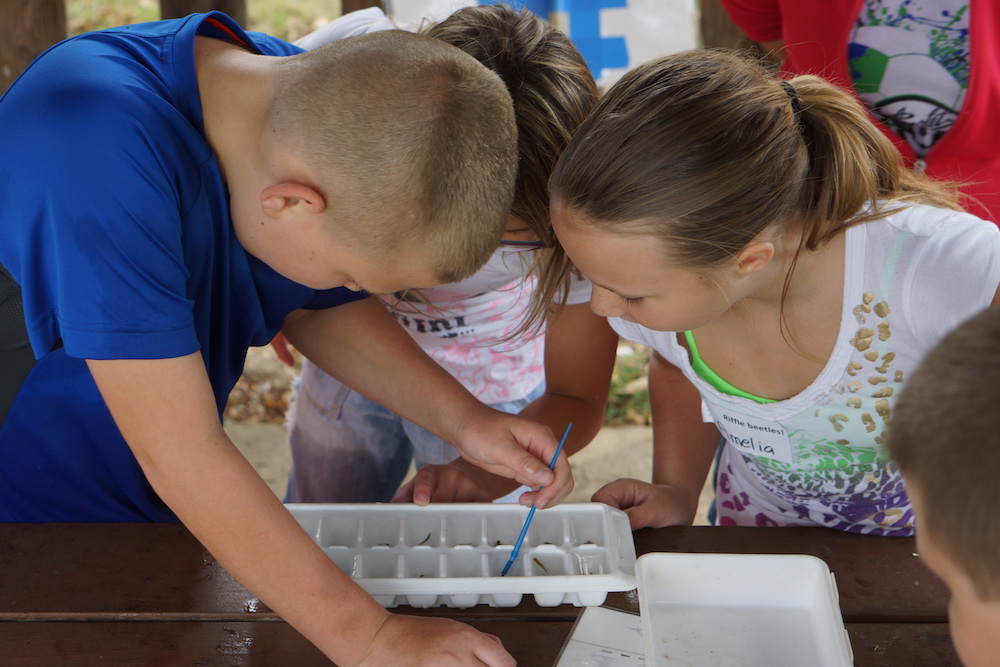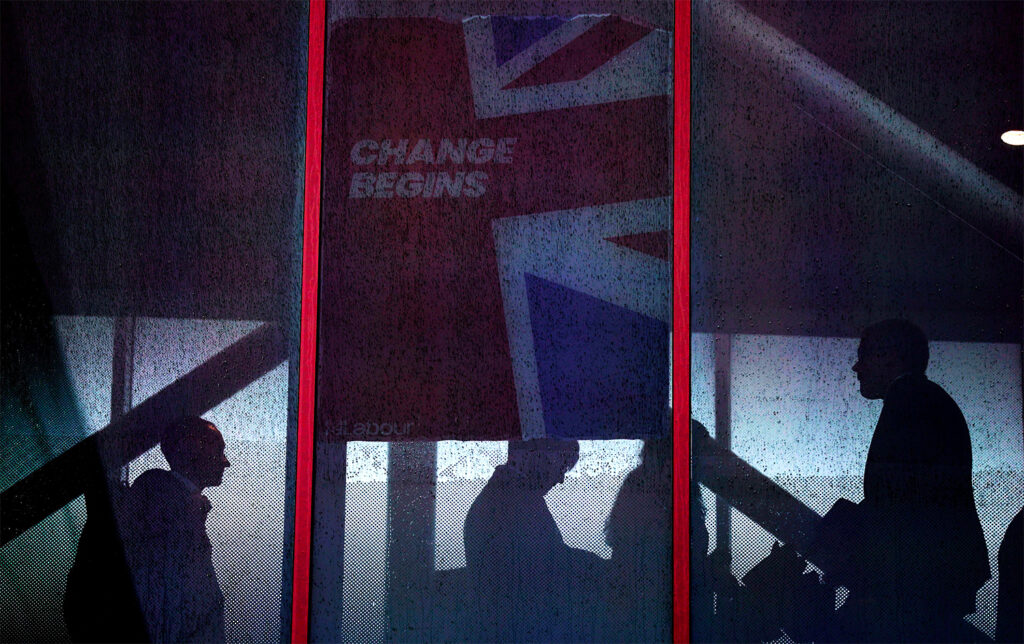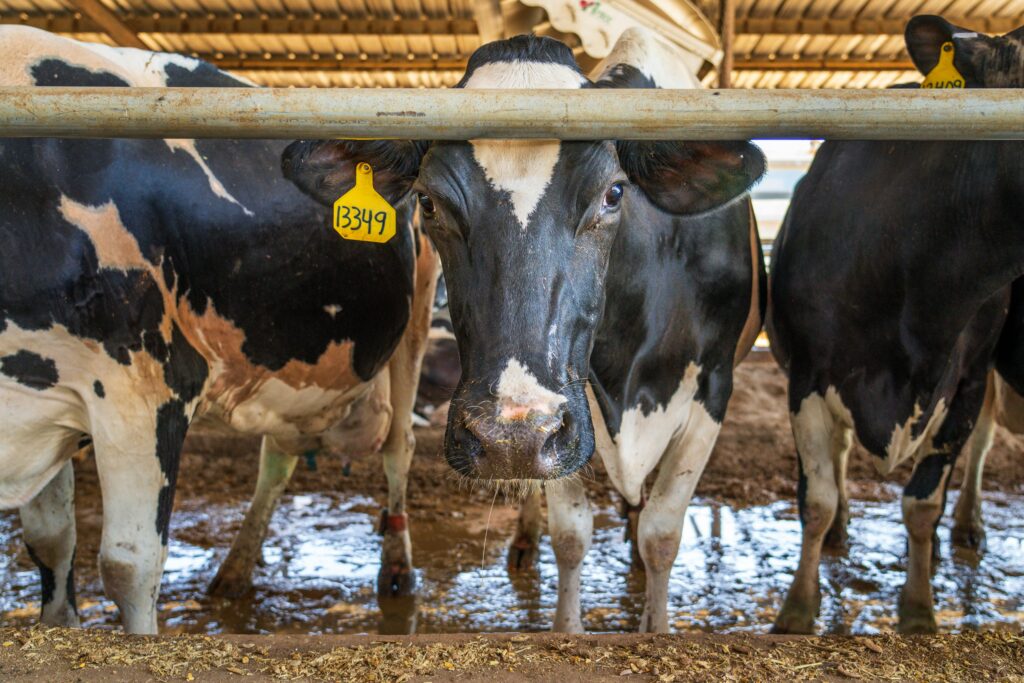Educating kids about climate change can help their parents learn too, a scientific study published today in the journal Nature Climate Change concludes — even when parents initially doubted that climate change was cause for concern.
“This study tells us that we can educate children about climate change and they’re willing to learn, which is exciting because studies find that many adults are resistant to climate education, because it runs counter to their personal identities,” said Danielle Lawson, lead author and a Ph.D. student at North Carolina State University. “It also highlights that children share that information with their parents, particularly if they’re given tools to facilitate communication — and that parents are willing to listen.”
Building a Curriculum for Climate Communication
Fayette County Science Fair, 2008. Credit: Rich Bowen, CC BY 2.0
Researchers, with support from North Carolina Sea Grant and the Department of Interior’s Southeast Climate Adaptation Science Center, surveyed levels of climate concern among 238 students and 292 parents, then helped middle school science teachers work climate change into lessons taught to 166 of those students.
Middle school students from coastal North Carolina counties participated in four classroom activities as part of their climate change curriculum. In addition, they went out of the classroom for a service-learning project (which parents were invited to view). The curriculum was modeled on the Association of Fish & Wildlife Agencies’ Project WILD, which educates kids about wildlife, and included each student interviewing one of their parents about weather changes.
Before the study, parents and students were asked to rate their level of concern about climate change on a scale running from -8 to 8. In a follow up survey, students without climate education showed the smallest increase in concern, 0.72 points. Parents of students whose science curriculum included climate change showed a striking 3.89 point increase in concern — over a point higher than their children. The researchers sought to tie their curriculum to North Carolina issues, in part because prior research showed that thinking about climate change in a local context can help circumvent skepticism.
Conservative parents went from rating their level of concern at an average -2.1 to a positive 2.5 — meaning that after students studied the science, a significant percentage of parents unconcerned about climate change became convinced.
“Notably, liberal and conservative parents in the treatment group ended up with similar levels of climate change concern by the end of the study,” researchers said.
Talking Climate in the Classroom
The study comes on the heels of an April NPR/Ipsos national poll that found more than 80 percent of parents in the U.S. want to see climate change taught in schools. Two-thirds of adult Republicans support the idea of climate education in schools, as do 90 percent of Democrats.
Nearly two-thirds (66%) of Americans believe schools should teach about climate change and its impacts, and an additional 12% say schools should teach about the existence of climate change, per a new @NPR/@Ipsos survey, writes @anya1anya. https://t.co/9Jc4F9zCmi pic.twitter.com/eH7sjlHIhj
— Molly Fisch-Friedman (@MFischFriedman) April 22, 2019
Among teachers, support runs at 86 percent, the NPR survey found — but a third expressed concern about pushback from parents if they taught climate science.
The grounds for that concern seem to be fading, some education experts say. “You can say humans are impacting climate,” Brad Hoge, the director of teacher support at the National Center for Science Education, told Houston Public Media. “And you’re not going to get as much pushback as you expect.”
In March, the National Association of Biology Teachers adopted a position paper favoring teaching climate science. “The overwhelming preponderance of peer-reviewed studies and the vast majority of climate scientists agree that Earth’s atmosphere is warming and climate changes since the beginning of the Industrial Revolution are anthropogenic [or caused by people] and due primarily to the burning of fossil fuels and deforestation,” the position paper says. “Educators should not misrepresent climate science as ‘controversial.’”
DeSmog has previously covered a 2017 effort by the Heartland Institute, which has received over $676,500 from fossil fuel giant ExxonMobil since 1998, to distribute a misleading climate science “guide” to tens of thousands of school science teachers — whose inaccuracy drew warnings from federal lawmakers including Senators Sheldon Whitehouse, Elizabeth Warren, Edward Markey, and Brian Schatz.
Later that year, the Paleontological Research Institution published their own in-depth offering for science teachers, The Teacher-Friendly Guide to Climate Change — which includes a detailed examination of 18 questions commonly raised by climate science deniers, all of them answered, as DeSmog reported.
The Nature Climate Change study’s authors emphasized that their curriculum was designed to offer students a scientific education.
“To be clear, climate change education is about giving people a good foundation in climate science and cultivating critical thinking skills,” Kathryn Stevenson, co-author of the paper and an assistant professor at NC State, said in a statement. “This is about education, not activism, and children are great educators.”
A Climate Reality for American Students and Teachers
Hurricane Matthew rolled into the Lowcountry in early October 2016, knocking out electricity, leaving behind flooded areas, downed trees. Credit: Ryan Johnson/North Charleston, CC BY–SA 2.0
A little more than half of adults worldwide say they agree that human activities cause climate change, the study noted, adding that roughly a third of Americans (erroneously) believe that the causes and impacts of climate change are very uncertain and that its impacts will only affect less developed countries.
But climate change is already a reality for many American students, affecting lives whether the subject is taught in science class or not.
Over 9 million American schoolchildren missed school in 2017’s fall semester because of natural disasters including Hurricanes Harvey, Irma, and Maria, an NPR Ed analysis found. All three hurricanes were made more intense by climate change, scientists say.
It even seems to have impacted the classrooms that were part of the Nature Climate Change study. Five of the 26 teachers who had agreed to teach the full climate science curriculum in the North Carolina study withdrew, citing lost teaching time due to October 2016’s Hurricane Matthew, which was stoked by oceans that had reached record-high temperatures.
Main image: Students from Mitchell County, North Carolina, identify insects as part of an environmental education event in 2013. Credit: Gary Peeples/U.S. Fish and Wildlife Service, CC BY 2.0Subscribe to our newsletter
Stay up to date with DeSmog news and alerts









